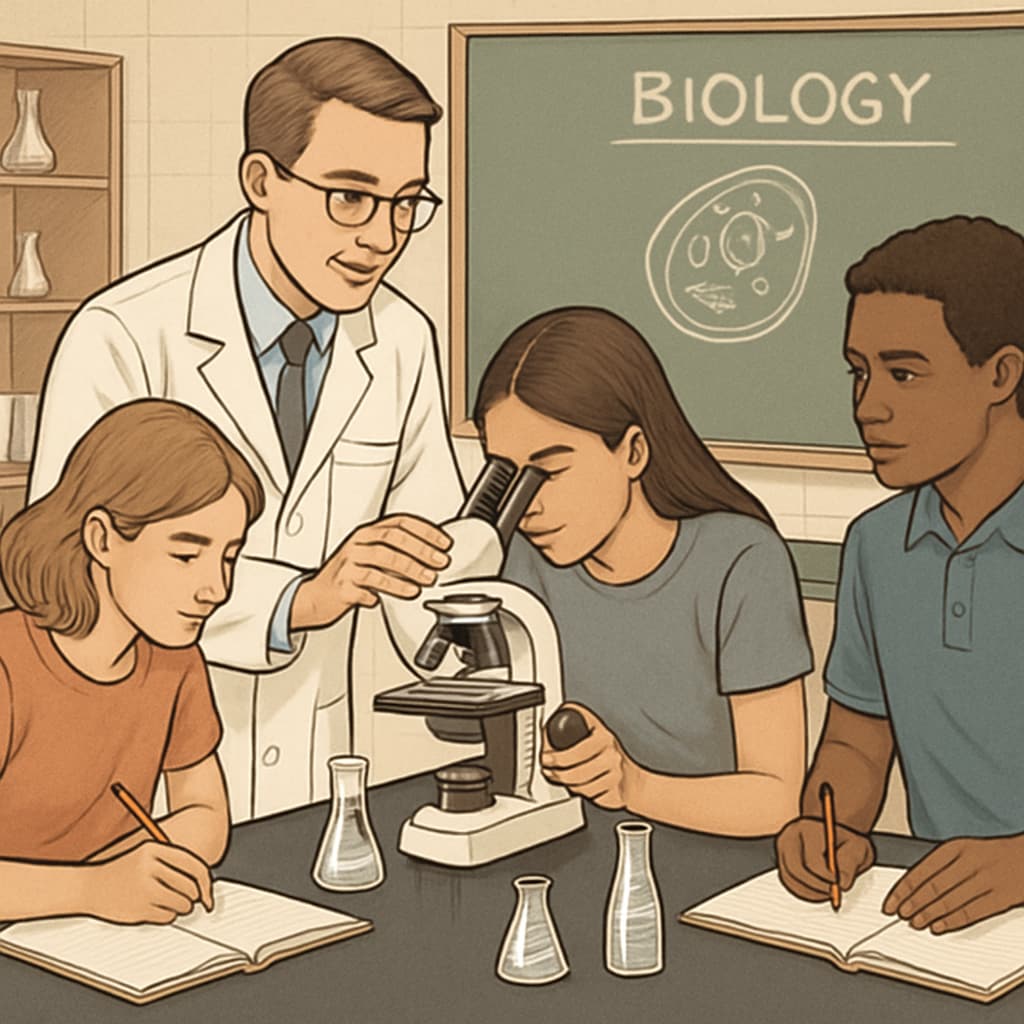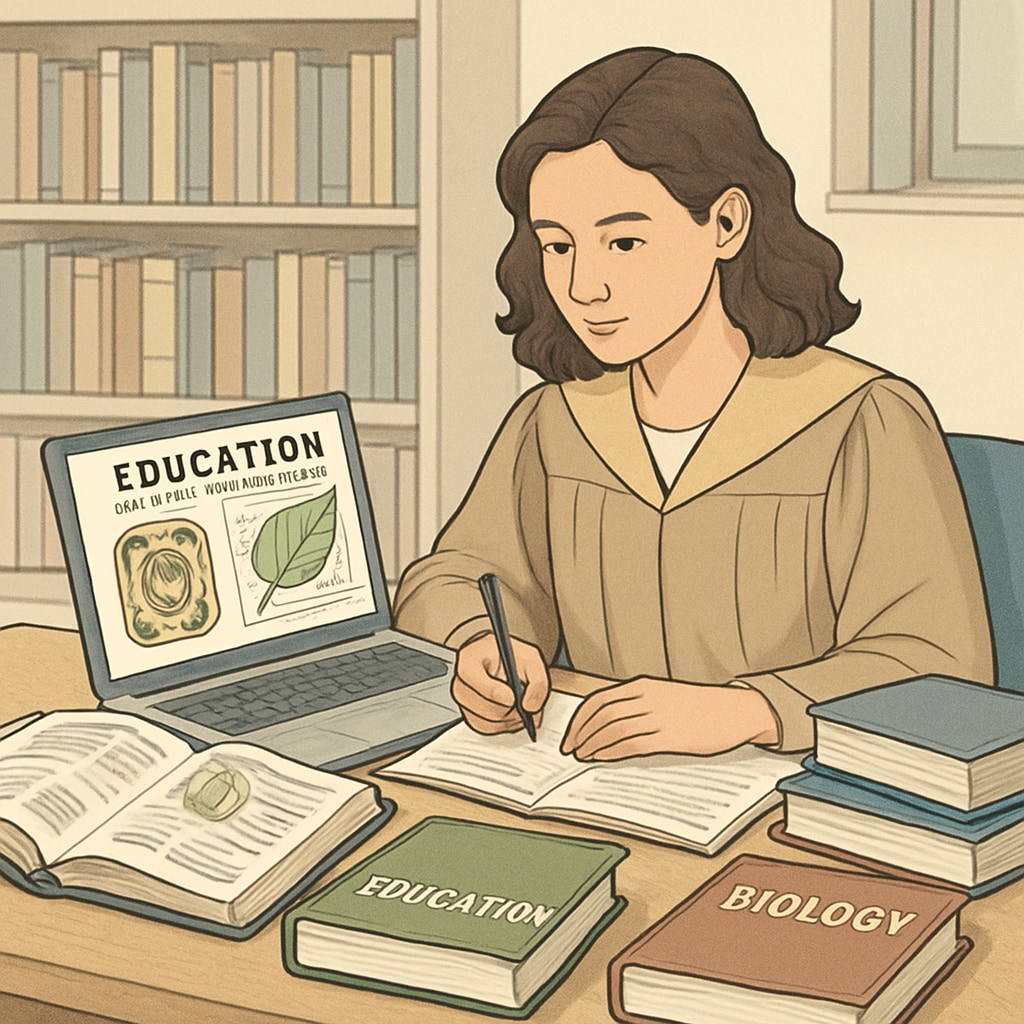For students with a biology background, the idea of transitioning to a Master’s in Education may seem like a leap across disciplines. However, this professional transformation is not only feasible but also offers a unique opportunity to blend scientific expertise with the art of teaching. With the growing demand for STEM (Science, Technology, Engineering, and Mathematics) educators, biology graduates have a strong foundation to inspire the next generation of scientists. This article explores the feasibility, benefits, and challenges of such a transition and provides actionable strategies for biology majors aiming to pursue a career in education.
Why Biology Majors Make Great Educators
Biology graduates possess skills and knowledge that are highly transferable to education. Their ability to analyze data, approach problems methodically, and communicate complex concepts clearly are all crucial in the classroom. Additionally, their expertise in biology can help bridge the gap between theoretical knowledge and real-world applications, inspiring students to see science as both accessible and fascinating.
The increasing emphasis on STEM education in schools further amplifies the demand for educators with a strong science background. According to a report from Britannica, STEM educators are critical in preparing students for the rapidly evolving job market. Therefore, biology graduates are ideally positioned to fill this gap, particularly in high school or middle school settings.

Challenges of Transitioning to a Master’s in Education
Transitioning from biology to education is not without its challenges. For many, the biggest hurdle is adjusting to the pedagogical focus of education programs, which often prioritize teaching methodologies, student psychology, and curriculum development over content expertise. This shift requires biology graduates to step outside their comfort zone and embrace the softer skills of teaching, such as empathy, adaptability, and classroom management.
Another potential challenge is meeting the prerequisites for Master’s programs in education. Depending on the institution, applicants may need to demonstrate teaching experience or complete prerequisite courses in education-related subjects. Additionally, some programs require certification exams, which vary by country or state.
Strategies for a Successful Transition
For biology graduates considering this transition, careful planning and preparation can make the process smoother. Here are some practical steps to take:
- Gain Teaching Experience: Volunteer as a tutor, participate in outreach programs, or work as a teaching assistant. Hands-on experience will not only strengthen your application but also clarify whether teaching aligns with your career goals.
- Research Master’s Programs: Identify programs that specialize in STEM education or offer pathways for professionals transitioning from other fields. Look for programs that align with your interests and career aspirations.
- Bridge Knowledge Gaps: Take introductory courses in education or pedagogy to familiarize yourself with foundational concepts. Many institutions offer online courses or workshops for prospective educators.
- Prepare for Certification Exams: Research the certification requirements in your region and begin studying early. Some Master’s programs integrate certification into their curriculum, which can be an added advantage.

The Benefits of a Cross-Disciplinary Career
While the transition from biology to education involves effort, the rewards are significant. As a biology teacher, you have the opportunity to make a tangible impact on students’ lives, sparking their curiosity and guiding them toward future careers in STEM fields. Moreover, educators often report high levels of job satisfaction, stemming from the meaningful relationships they build with students and the broader school community.
In addition, pursuing a Master’s in Education can open doors to diverse career paths beyond traditional teaching roles. With advanced qualifications, you can explore opportunities in educational leadership, curriculum design, or even science communication.
As highlighted by Wikipedia’s entry on education, the field is constantly evolving, offering numerous avenues for professional growth and innovation.
Conclusion: Bridging Science and Education
For biology graduates with a passion for teaching, transitioning to a Master’s in Education is not only feasible but also highly rewarding. By leveraging their scientific expertise and embracing the art of pedagogy, they can inspire a new generation of learners and contribute meaningfully to the education system. While the journey involves challenges, with careful planning and a genuine commitment to education, biology majors can successfully navigate this professional transformation and thrive in their new roles.
Whether you’re a recent graduate or a seasoned professional, the path from biology labs to the classroom is one that promises both personal fulfillment and societal impact. If you’re ready to take the leap, start exploring your options today and begin your journey toward becoming an inspiring educator.
Readability guidance: This article uses short paragraphs, lists key points clearly, and incorporates transitional phrases to improve flow. It balances technical content with accessible language to ensure readability for a broad audience.


